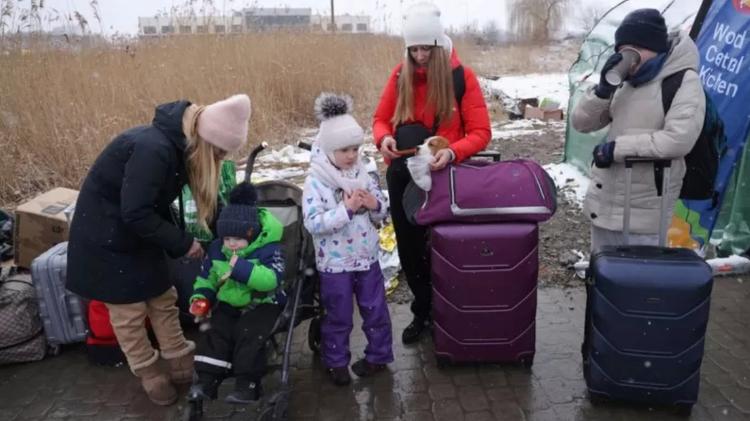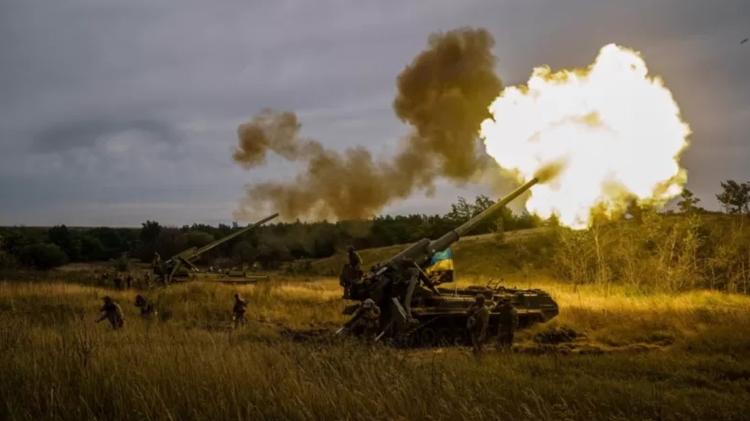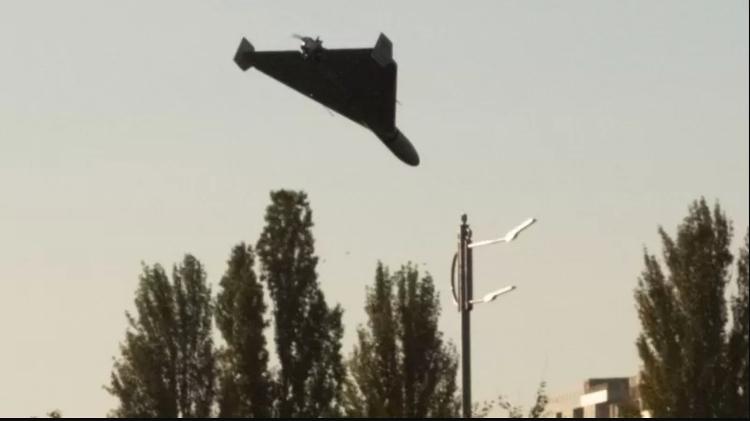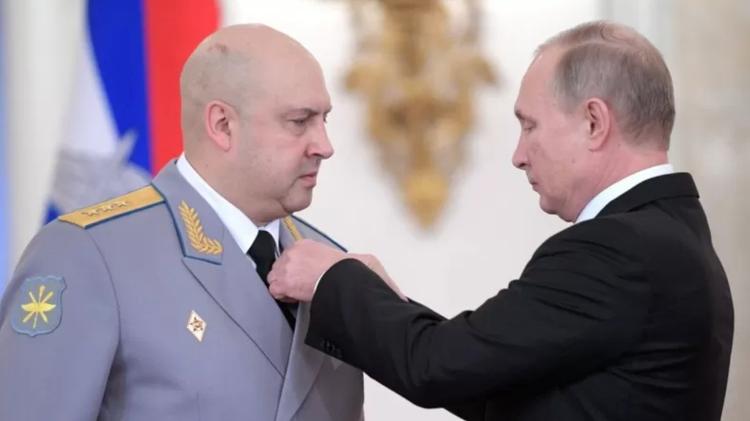In a little over a month, winter will fall on Ukraine.
This is a situation that could thwart any attempt by its armed forces to continue retaking the territory occupied by the Russians, despite recent victories such as the Ukrainian army’s capture of Kherson this week.
Russia may also try to cool the Ukrainian civilian population by attacking more power plants and fuel depots.
How should the arrival of winter affect the conflict?
How cold is winter in Ukraine?
Between December and March, average temperatures in Ukraine fall between -4.8ºC and 2ºC.
On average, it snows 14 days in December, 17 days in January and 15 days in February. More than 1.5 meters of snow falls in each of these months.
However, in the south of the country, on the Black Sea coast, winters are milder.
How will the winter weather affect the war in Ukraine?
Temperatures are already falling below freezing in Kiev in the north.
The average temperature in January is -3.8°C, and the temperatures at night drop to an average of -6.1°C.
However, in the southern region of Kherson the average January temperature is significantly higher: -0.9°C. The average low is -3.7°C.
That means temperatures on the front lines in northeastern Ukraine could drop enough to freeze the ground.
But on the front lines near the Kherson region, winter snow and rain can turn the ground into mud.
How will winter affect the troops in the war?
Muddy ground and deep snow will make it difficult for troops and their vehicles to move quickly.
Forbes Mackenzie, executive director of Mackenzie Intelligence Services, says this puts Ukrainian troops at a disadvantage because it hinders their rapid advance.
“The Ukrainians will want a cold, harsh winter with frozen ground to be able to continue maneuvering quickly and encircle the Russian forces,” he says.
“But the Russians will want a warm, rainy winter that will put the Ukrainians in a stalemate.”
A big problem for Ukraine and Russia will be to replenish their forces.
“Soldiers need more food in winter and more fuel to stay warm,” says Ben Barry, member of the International Institute for Strategic Studies.
“However, both sides are used to cold weather and their gear is designed for the cold, so the winter weather won’t completely prevent your troops from colliding with each other,” he says.
How will the winter war affect it?
Many military experts believe that during the winter months, both Russian and Ukrainian armies will focus more on artillery than ground attacks.
“Provisions are harder to carry in winter and soldiers are more vulnerable to shortages,” says Marina Miron, defense researcher at King’s College London.
“Both sides will use long-range artillery and drones to attack supply lines and supply depots to deplete competing resources.”
However, if they are not using infrared equipment, storms and snow can affect the ability of both sides to detect artillery targets.
The Ukrainian and Russian armed forces rely heavily on drones, and many are equipped with basic cameras.
Russia to shoot civilians in Ukraine also Winter?
Russia has already launched several attacks on residential areas and civilian facilities such as power plants and waterworks.
Orysia Lutsevych, director of the Ukraine Forum at Chatham House, says the strategy should continue throughout the winter.
“Civilians expect continued attacks on infrastructure to primarily deprive them of heat,” he says.
“Now people stock up on fuel like firewood and buy greenhouses. Hospitals buy their own generators.”
Russia’s strategy is now in the hands of General Sergei Surovikin, who was appointed commander-in-chief of the forces fighting in Ukraine.
Surovikin is known as “General Armageddon” because of the “iron-fisted” manner in which he led operations in Syria.
Miron says their aim may be to demoralize the Ukrainian people.
“Russia believes that if people freeze into despair, they can revolt against their government,” he says.
But Lutsevych says Ukraine is relatively well prepared for winter.
“The gas storage facilities are full and you have a large supply of fuel like diesel,” he says.
“People understand that Russia did not win the war and that if they can get through the winter, they will be more successful against Russia in the spring.”
source: Noticias



